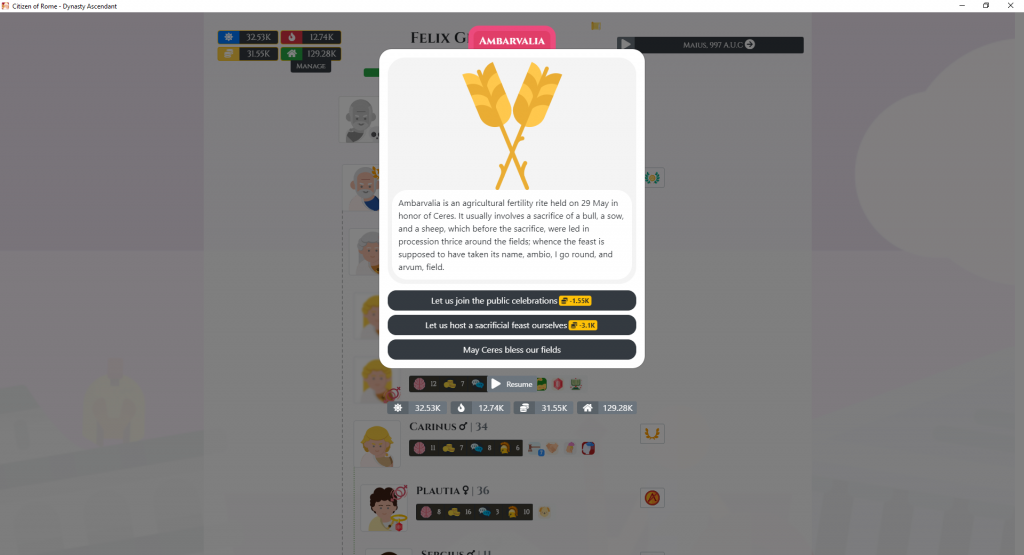In this weeks bulletin, we discuss A Total War Saga: Troy, The Secret of Monkey Island, Partisans 1941, woman protagonists in video games, cat Nazca lines, Humankind, the Wagadu Chronicles, two publications and this weeks Stratigraph!
A Total War Saga: Troy photo mode
The photo mode for A Total War Saga: Troy will be available from yesterday (22 October) onwards. In a free update, players will now be able to capture some nice pictures from the game. Next to the photo mode, the update will also add new deities, new agents and new special abilities. We’re still unsure if Troy was the best way to tackle the saga’s created by Creative Assembly, but at least it’s better than Thrones of Brittania. Read more on Eurogamer.
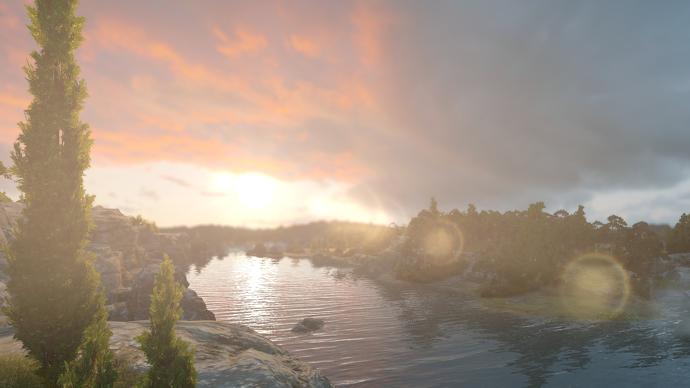
The Secret of Monkey Island preservation
Last week we mentioned the Video Game Source Project, started by the Video Game History Foundation. Now we know that The Secret of Monkey Island will be one of the first game which will be preservated by the project. In a (paid) 90-minute livestream with Ron Gilbert (the creator of the Monkey Island games), the project will go over some of the sources used to create the game. Like already pointed out last week, this is more than only the source code, it can also be game art, documentation or other sources related to the game’s production. Read more on Rock Paper Shotgun.
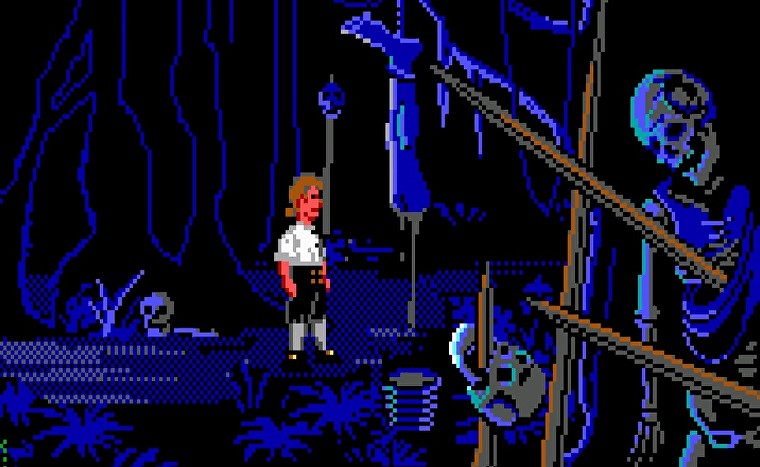
Partisans 1941 review
Last week, Partisans 1941 was launched. In the stealthy real-time strategy game, you play as partisans (duh) on the Eastern Front during WWII. It’s a gritty depiction of the horrors on the Easter Front, played from a Russian perspective. Nate Crowley of Rock Paper Shotgun reviewed the game, and wasn’t let down. According to Crowley, the game feels like Desperados 3, but is less flashy. However, it makes up for the lack of ambiance and finesse (it is still the Eastern Front remember, the colour grey was quite common) with some very intuitive and well thought out mechanics (like the ability to slow down time). One downside: completion (at least for the more casual players among us) relies heavily on savescumming, as getting stealth right is always hard. Read more of Crowley’s review on Rock Paper Shotgun.
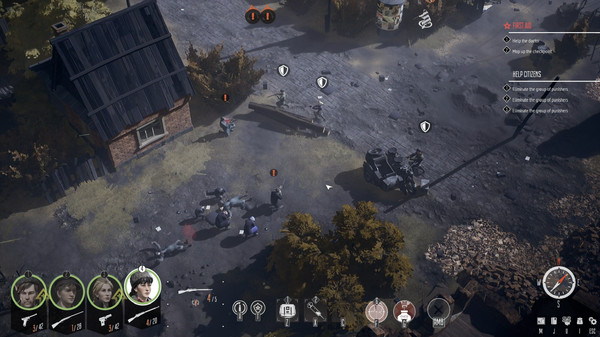
More women featured in video games this year. Will it last?
2020 is a weird year on multiple fronts. However, it’s not all bad news. 2020 is also a year in which females are featured in video games much more. In research done by Wired, it becomes clear that female protagonist are much more regular than the years before. 18% of video games from 2020 have a female protagonist, whilst this number was only 5% in 2019. Also, the percentage of male protagonists hasn’t risen more, so where male protagonist often were three times as prominent as female protagonists, this difference is now only 5% (18% vs. 23%). We’ve also seen more and more attention for the male dominated industry (Ubisoft preventing female leads in the Assassin’s Creed series for example). But, is this just an anomaly or a trend for the coming years? According to Wired, 2020 is indeed a wildcard year, but are hopeful that the trend of female representation does indeed continue over the coming years.
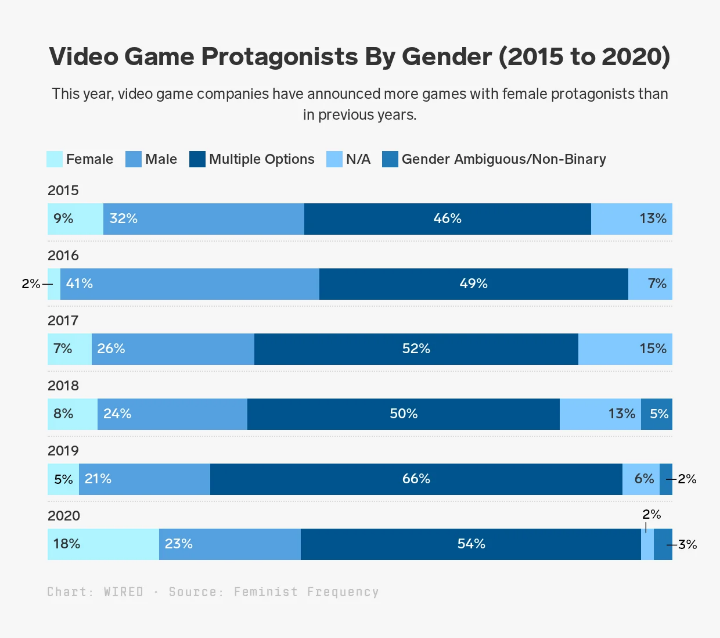
Huge cat Nazca line found
Yes, this is indeed no archaeogaming news, but to quote our own Ymir: ‘if we are not sharing archaeology cat news then what are we doing?’ Archaeologists working at the Unesco World Heritage site have found the feline character, and estimated it dates back to around 200 to 100 BCE. It’s on a hill, making it prone to natural erosion, and was hard to spot. However, with the use of drones, they could see the cat in the mountain, and have since then worked to improve the visibility of the animal. Read more on the Guardian.

Humankind arrives in April 2021
This sounds like a message from a sci-fi space travel movie, but it’s only about the upcoming 4X game Humankind. The so-called ‘Civ-killer’ was meant to be released this year, but got pushed back to 2021 in June. With the open-dev scheme running in the mean time, devs Amplitude announced the final version of the game is set to launch in April 2021. With the announcement, word also got out of a pre-order discount of 15% on it’s hefty €/$60 price tag (on Steam, Epic and Google Stadia). Read more on Eurogamer.
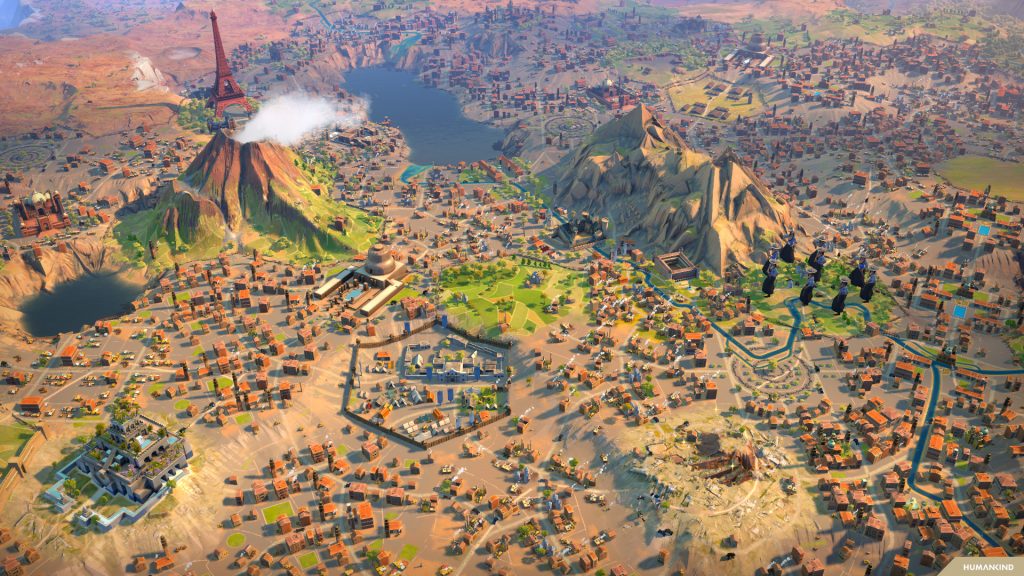
The Wagadu Chronicles – Riot Games Underrepresented Founders Program
About a month back, we discussed The Wagadu Chronicles, a MMORGP in development centered about African (especially non-European) lore. First of all, the game has easily reached their Kickstarter goal, with time to spare! Secondly, they are now partnered with Riot Games (the people from League of Legends and Valorant). Back in June, Riot pledged $10 milion towards investment and funding for underrepresented founders in the industry. Devs Twin Drums of The Wagadu Chronicles are the first to partner up with the Underrepresented Founders Program. With the backing, experience and network of Riot, the program is set to help indie studios build a more inclusive game industry. Read more on the program and the partnership with Twin Drums here, and check the video down below!
Books and articles
This week some cool books were published. First off: History in Games. Contingencies of an Authentic Past edited Martin Lorber and Felix Zimmermann. This book is a collection of articles about authenticity in video games about the past. Our own Dr. Random also has an article in there (about our ‘RoMeincraft’ project). The second book is called Atari Design: Impressions on Coin-Operated Video Game Machines by Raiford Guins. In this work, Guins explores how Atari’s industrial and graphic designers contributed to the development of the video game machine. Design is just as important as mechanical working when creating machines, and Atari is the prime example of this. Looks very neat!
Stratigraph round-up
This week, TimesnewRoman posted a Stratigraph on Citizen of Rome – Dynasty Ascendant, a game where you try to build your own Roman family, working up through the many social classes. It’s a pretty cool game, mostly focussed around festivals (which were very important in Ancient times). Read the Stratigraph and (re-)watch our stream of the game!
